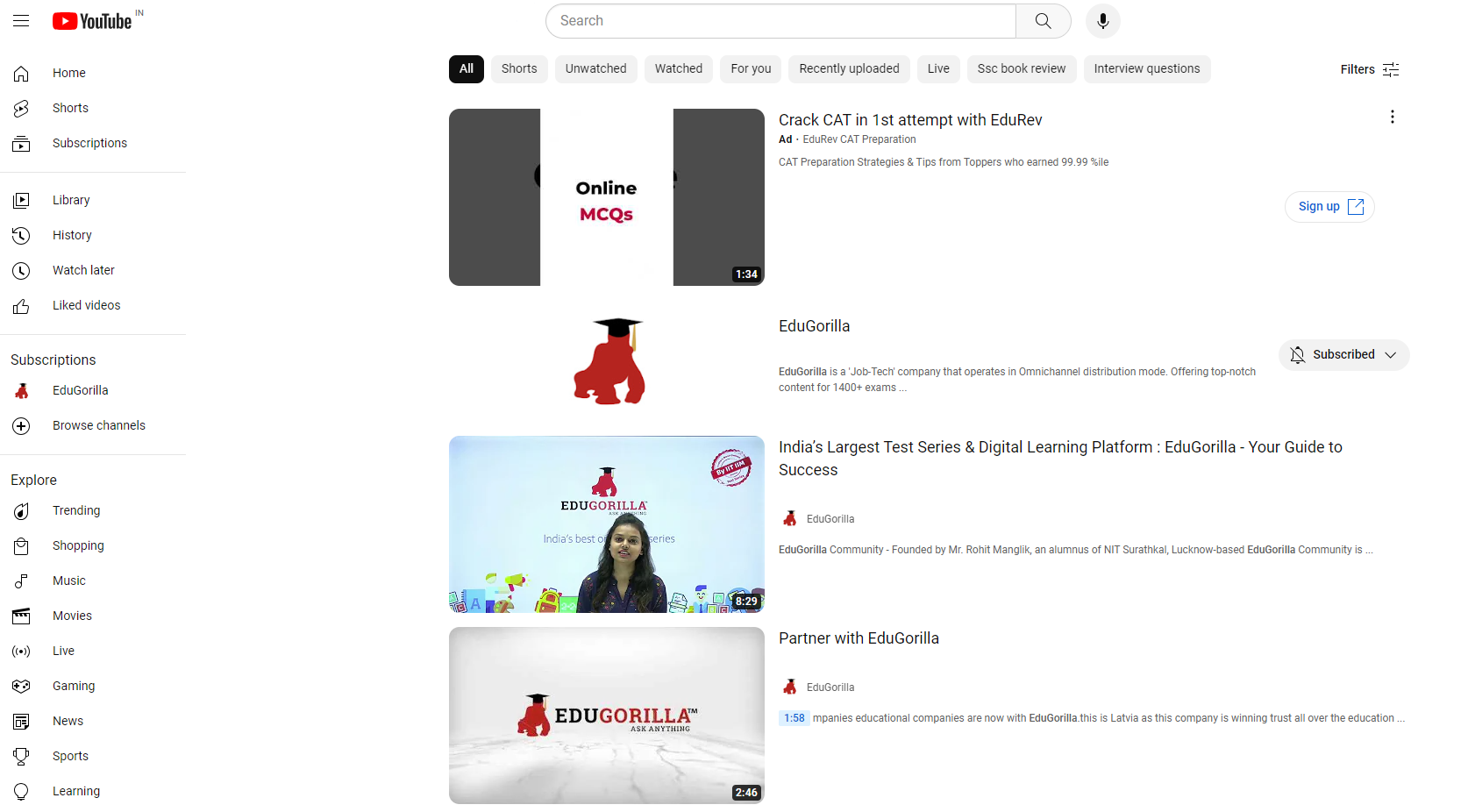Informal education is not organised or structured, and it happens outside the conventional classrooms. The teachers, students and the curriculum are not definite in informal education. No person or authority regulates it. There is no age restriction for informal learning. This learning starts from birth and continues till death. Family, state, society, library, field, and neighbourhood are the sources of informal education. In informal education, everyone is a learner irrespective of their age. There is no supervision or regulatory authority for it.

Informal education is spontaneous and natural. The information or things you learn from this education comes from real-time experiences. Learning in informal education is possible for students of any background. There will be no guidelines, standards or fees for this kind of education. Anyone can become your teacher in informal education as there will be no requirements. The first teachers of any person are their parents and the people they have grown up in informal education. There are many benefits of informal education as it shapes your personality and behaviour. Informal education is not useless though we cannot mention it in our degrees. It will have weightage in many situations as interviews assess character and attitude for which informal education forms the base.
Formal Education System Vs Informal Education System
A formal education system will have definite structures, syllabus, examinations, and deadlines. Education is a method of having students sit in a traditional classroom to learn from teachers for centuries. The formal education begins at early childhood ages at the kindergarten level and goes up to postgraduate and PhD. It will have definite steps which the authorities will decide by keeping the needs of students in mind. In this form of education, assessment of performance is through the exams.
The informal education system has no rigid structures and curricula. The syllabus is covered by the teachers using different tools and techniques to meet the requirements of the students. Informal education is spontaneous and continuous. In this kind of learning, teachers can personally observe every student and pay attention to them for better outcomes. Students need not pay any fee for learning in this method of education.
10 Characteristics of an Informal Education System
Informal education is all about practical learning. Knowing the characteristics of an informal education system will give you interest. The features of informal education are below. We can say the features as benefits of informal education.
1. Unorganized Learning
There will be no rules and regulations to follow. Teaching your child brushing their teeth or the alphabet is a form of informal education. It does not have a prescribed study programme. Unorganized learning shapes the personality and behaviour of the children. Personality education uses it as it influences the behaviour of a person.
2. Learning Environment
Informal education creates an environment where people can learn and expand their knowledge. Environmental factors affect this kind of education. This kind of learning occurs from society, family and the environment. A person speaking their mother tongue is an example of informal education.
3. Practical Knowledge
It is one of the crucial characteristics of an informal education system. Informal learners show a great interest in their studies. They are eager and attentive to learn, unlike classroom learners. Informal education gives students practical knowledge that makes it more attractive. This kind of knowledge stays longer in the minds of learners. Informal education stresses the social components of learning. It makes the development of kids easier.
4. Conversational
Informal education is not a lecture where the teacher goes on teaching and students listen. It starts with a conversation about life experiences and is a friendly discussion between the teachers and the students. They can debate and learn from the experiences of one another. The process of connecting makes this learning process successful.
5. Focuses on Experiences
It is one of the best characteristics of an informal education system. Informal education creates an environment where everyone will learn from each other’s experiences. Here, teaching can be implicit though the activity depends on any learning. It is not about teaching complex things and providing skills. It involves giving tools to do materials.

6. No Classroom
The world is your classroom in information education. It is a myth that learning occurs in the school or inside the class. In informal education, this can happen in any place like your house, park, street or community. It is tough to assess informal learning as there are no particular tests for measuring it. The lifeblood of informal education is conversation and interaction.
7. Accessible Learning
People can learn from anywhere and anything in informal education. It may take place at any moment. The desire to learn makes the person gain some knowledge. This kind of learning is accessible to everyone. Observation is the investment that learners have to put in to get a skill or work.
8. No Curriculum
There will be no formal education system and curriculum in informal learning. There will be no prescribed study plans and procedures. Only the teachers know how to project a thing based on their experiences in it. In this form of learning, there will be no curriculum or timetable. One can learn at their flexible time without paying any fee as informal learning rotates around the surrounding environment and the people. Students in informal education are free to choose how they want to learn and move forward.
9. No Boundaries
Another great feature of informal education is there are no boundaries for learning. No organisational structures like schools or colleges are necessary. Instead, anyone can learn from anything. Hence, interstate and inter-country education become possible. Also, there are no exams for which you have to cover a particular subject or thing.
10. No End
Informal learning continues throughout our life. When a child goes to school, informal education does not end there. Children can learn even though they are not in school. Schools will not teach everything, and learning about them is possible through information education. We observe some things from our parents and elders while growing up. We also know from colleagues when we start working. Informal education makes us young and creative. Though we cannot add it after our names like formal education, it is equally essential for the complete development of the individual.
Informal learning takes place in our daily life in any form. Being aware of it will help us take advantage of it on a larger scale because the benefits of informal education are great in number. One can become a respectable person in society through informal learning. So, both formal and informal education is crucial for the growth and development of an individual.
ABOUT GIBBON
Gibbon is a Plug and Play solution offered by EduGorilla, for anyone with a skill to teach. Gibbon helps you to take your classes online and earn independently.
- Gibbon gives you the ability to conduct & record LIVE classes, host unlimited video courses, provide online mock tests, and conduct online tests with LIVE proctoring abilities.
- Gibbon also provides you ready-made content of 1600+ Competitive, Entrance, and Academic exams from around the country.
- Gibbon helps you reach out to more students online and get a complete marketing setup.
- We have helped more than 3000 Brands, 10000 Institutes, 20000 Teachers and 2 Crore Students, transform their education and future.
Gibbon stands for “Online-Ready Teachers for a Future-Ready India”.To get started, book your free demo now.






